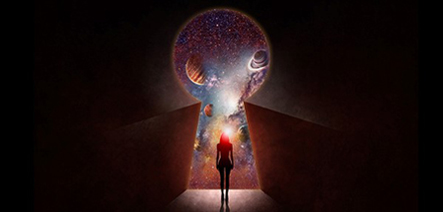What’s It All About

What’s It All About
So, last week, Paul Mayer, having read my past two MasterMind emails, asked me if I was going through my “theology phase”. I didn’t give it a great deal of thought at the time but when I woke up pondering his question at 4:00AM the next morning, I had to give it some serious consideration. My mother used to say, “everything is a phase and it will soon pass” – therein was the rub. After staring up at the phantom ceiling fan and mulling Paul’s question for nearly an hour in the dark, I came to three conclusions: 1. Yes, I am in the Theology Phase, 2. It began on June 27 of 1973, and 3. It’s not likely to “pass”.
Ages ago, in the previous century, I had a crusty old government professor who was a card-carrying member of the Communist Party. That wasn’t nearly as trendy in 1975 as it’s become today so he was continually rowing against the tide. Although I really admired his tenacity, I ended up disagreeing with the rest of his world-view. However, one thing he often repeated still rings true today. He insisted that EVERYTHING – from the vegetables we bought to Walter Chronkite’s famous evening news line, “and that’s the way it is” – was political. So, at 4:00 in the morning, I’m lying there wondering if everything is theological as well (i.e. Do the decisions we make fundamentally differ if there is a Creator as opposed to there being nobody here but us).
I’m not trying to answer that question on anyone’s behalf. I’m just saying the question is relevant to all the other questions we routinely ask. And I’m most definitely not promoting contemporary Western religion – that’s a whole other can of worms. I have lots of friends who claim they are atheists and I have lots of friends who claim they are Christians but sometimes their definitions of those two descriptors appear divergent from my own. In college, where I worked every Saturday at a camera store, I got to know a middle-aged customer who routinely came in to have her 35mm film processed. Her name was Madalyn Murray O’hare and she was the founder of the American Atheist Society. Oddly, I discovered that Ms. O’Hare, despite her adamant assertions to the contrary, had a much closer relationship with God than most people I ever met. Her’s was just a relationship of hatred towards a God she perceived as injust, based on her life experiences. She lived the dichotomy of hating a God she claimed did not exist. I later came to know many people who insistently identified as “Christians” and for many of them, I feel compelled to quote the philosophical genius or “Princess Bride”, Indigo Montoya – “You Keep Using That Word; I Do Not Think It Means What You Think It Means”.
I’ve come to understand there are really only two fundamental questions. They seem to underpin all the questions we keep bumping up against in MasterMind – How to best serve our families and employers without becoming enablers; How to ethically utilize our wealth; How to overcome a lack of self-discipline; How to discover what we’re alive for; How to nurture our unique talents without diminishing the talents of others; Why don’t people behave more like bees? The two foundational questions are these: 1. Does there exist a sentient being of infinite intelligence who designed the universe we know, as opposed to the concept of “time plus chance” which the inverse position must eventually embrace. And 2. (if and only if the answer to question one is “yes”) Does that entity reward those who seek to know it as opposed to those who develop a psychological construct called “God” in order to roll over and go back to sleep at 4:00AM, or as opposed to those who like my acquaintance, Ms. O’hare, struggle with their interpretation of life to the point they cannot force themselves to believe? Our answer to the two foundational questions drives our answers to EVERY other daily question.
So, in the tradition of my old Red college professor, I have truly come to the point where I can say “EVERYTHING IS THEOLOGICAL”. But, unlike my old nemesis, I cannot yet claim to have all the answers.
“Most people catch their presuppositions from their family and surrounding society, the way that a child catches the measles. But people with understanding realize that their presuppositions should be ‘chosen’ after a careful consideration of which worldview is true.”
― Francis A. Schaeffer, How Should We Then Live? The Rise and Decline of Western Thought and Culture











